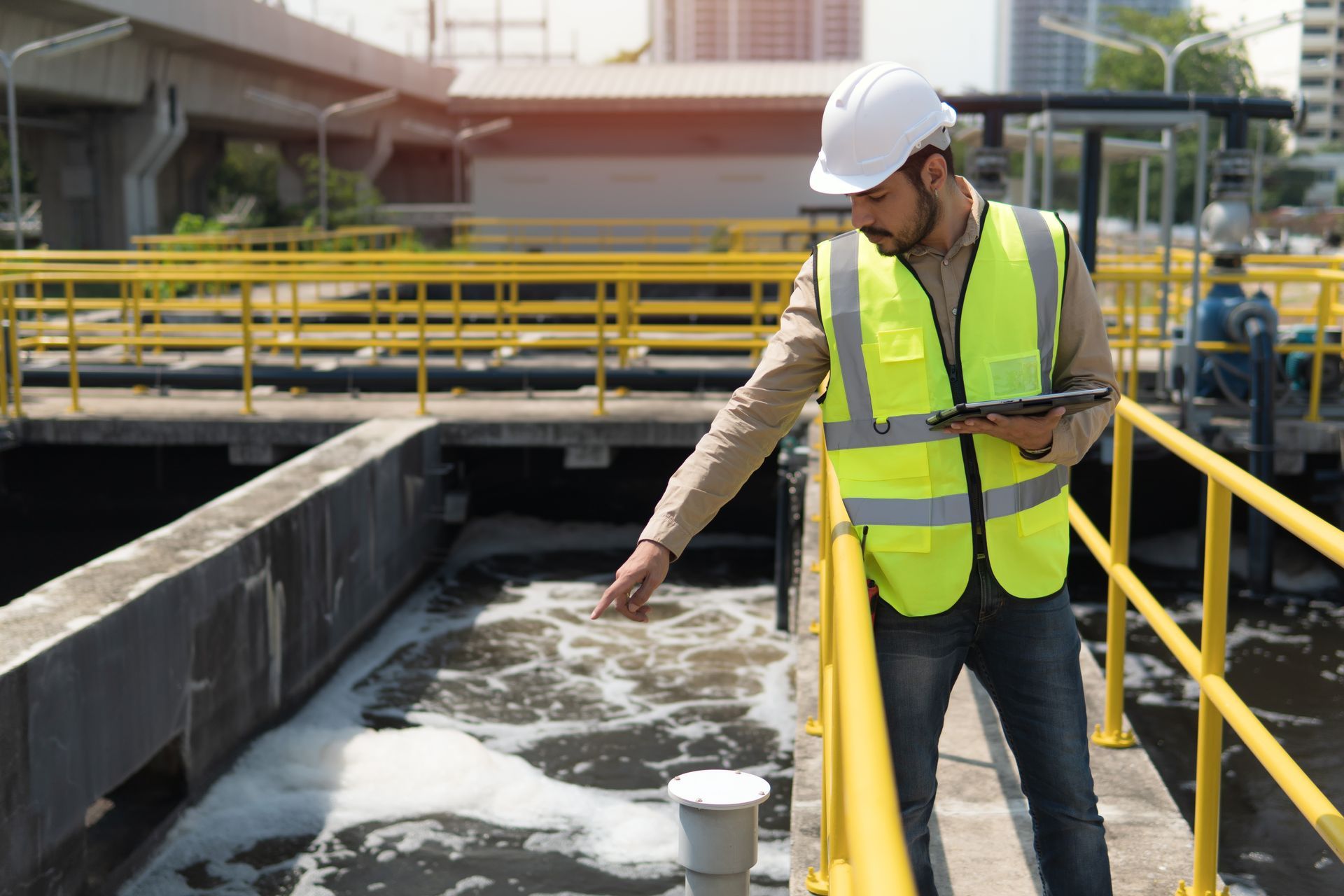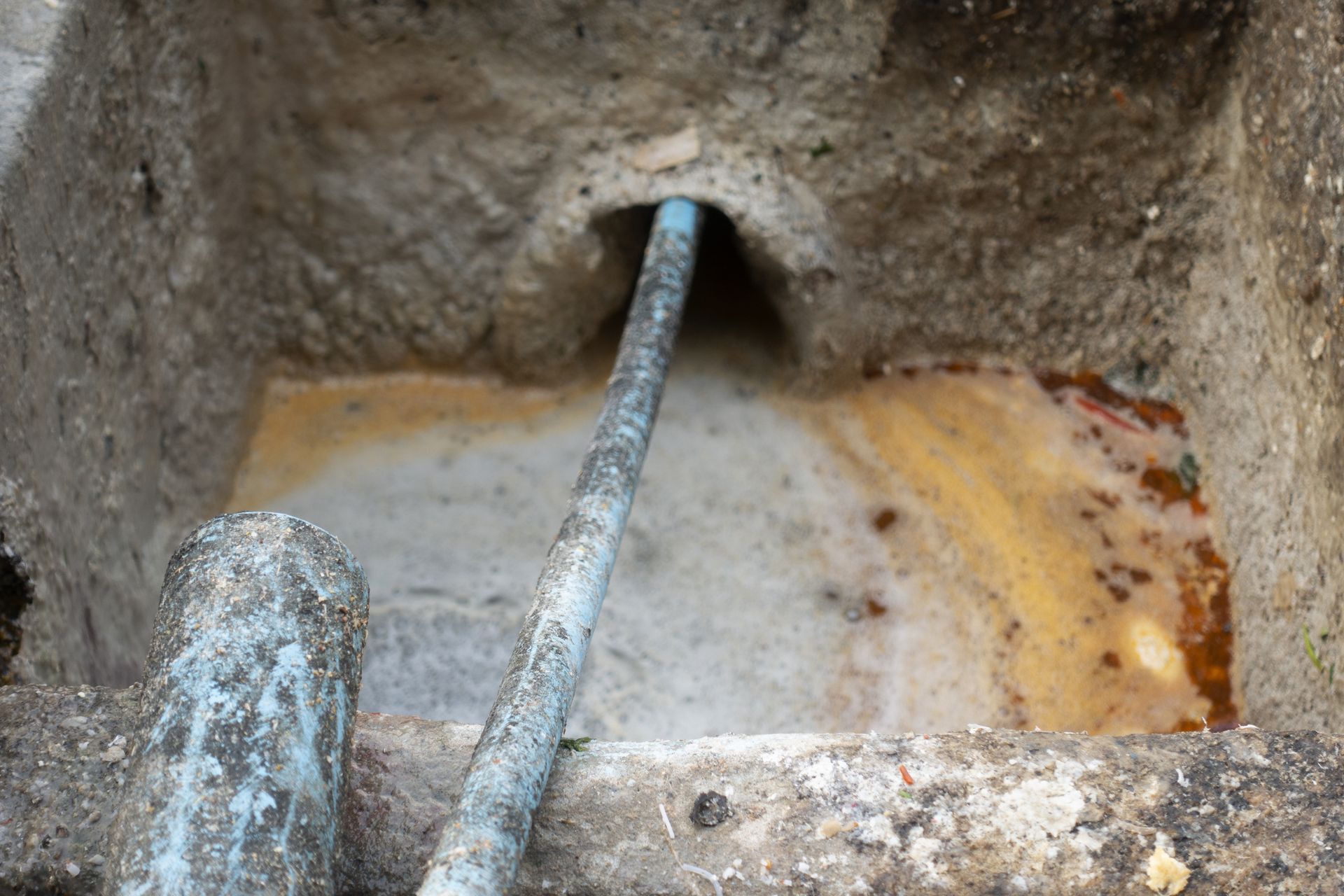Call Today for a FREE Quote
(404) 419-6887
How Do Wastewater Treatment Plants Purify Wastewater?

Wastewater collected for treatment in public treatment plants contain contaminants from a diverse variety of sources. This includes organic contaminants, nutrients, pathogens and chemicals. If left untreated, these contaminants can pose serious threats to the environment and public.
The Risks of Untreated Water
- Organic Matter: As organic matter decomposes it consumes dissolved oxygen. Deoxygenating water poses a threat to aquatic life and ecosystems.
- Excessive Nutrients:
Nutrients like nitrogen and phosphorus increase the risk of eutrophication. This can lead to harmful algal blooms that decrease oxygen levels and create ecological “dead zones.”
- Pathogens: Bacteria, viruses and parasites put public health at risk and can cause waterborne diseases if untreated.
- Chemicals: Chemicals, including heavy metals, pesticides and pharmaceuticals, pose long-term risks that affect aquatic life and potentially contaminate drinking water sources.
Wastewater Purification Treatments
Preliminary Treatment
Wastewater purification starts with the preliminary phase. During this phase, screening mechanisms remove large debris and solids from the water which prevents any damage to downstream equipment. This is then followed by grit removal, which removes smaller particles that could impact the efficiency of other treatment processes. The preliminary treatment ensures that the wastewater is overall cleaner and easier to manage as it progresses through the treatment plant.
Primary Treatment
The primary treatment phase concentrates on the physical separation of any suspended solids. Sedimentation tanks allow heavier particles to settle at the bottom. This phase helps reduce the organic load in the water and is a great asset for other biological treatments. This primary treatment step makes the subsequent advanced purification steps more effective.
Secondary Treatment
The secondary treatment intensifies the reduction of organic content and nutrients. This treatment uses equipment such as aeration tanks to help the growth of aerobic microorganisms that will consume remaining pollutants. Biological filters also provide additional surfaces for microbial activity, which ensures that the purification process is thorough. The secondary treatment is critical in upholding high water quality standards and promoting environmental sustainability.
Biological Treatment
The biological treatment is another part of the wastewater purification process and introduces microorganisms to further break down organic pollutants. This treatment uses systems like activated sludge and trickling filters to create environments that are helpful for the growth of beneficial bacteria. These microorganisms consume and transform organic matter into more stable forms and helps with the overall purification process.
Advanced Treatment
Advanced treatment methods help to achieve the highest standards of water purity. One method leverages modern technologies like ultraviolet (UV) disinfection and ozonation. Ultraviolet light is highly effective at neutralizing pathogens and microorganisms present in the water. This provides additional safety beyond conventional disinfection methods.
Similarly, ozonation involves the infusion of ozone, a powerful oxidizing agent, into the water to break down organic and inorganic pollutants. These advanced treatment technologies make sure that the delivery of water not only meets regulatory requirements but also exceeds expectations when it comes to quality and safety.
Trust Southern Green Industries in Georgia for Your Commercial Grease Trap Cleaning in Atlanta
Did you know that improper grease trap wastewater disposal and oil disposal can have damaging impacts on the environment? If you are looking for a professional company in the state of Georgia to help ensure you exceed regulatory requirements for proper and environmentally responsible grease trap cleaning and wastewater disposal, our team at Southern Green Industries is here for you.
For over 15 years, we have been dedicated to providing top-notch grease trap cleaning and oil fryer recycling services to our customers. We promise to provide personalized assistance every step of the way.
Get a free quote today by calling us at (404) 419-6887. Explore our service pages to learn more about what we have to offer here at Southern Green Industries.
Recent Blog Posts
Contact us Today for a FREE Quote
We are committed to making grease trap cleaning and fryer oil recycling as clean and easy as possible. If you’d like to learn more about our services or get a quote, give us a call at (404) 419-6887.
Southern Green Industries is an Atlanta owned and operated grease trap cleaning and fryer oil recycling company operating in Atlanta and throughout the entire state of Georgia.
All Rights Reserved | Southern Green Industries | Built by REV77


